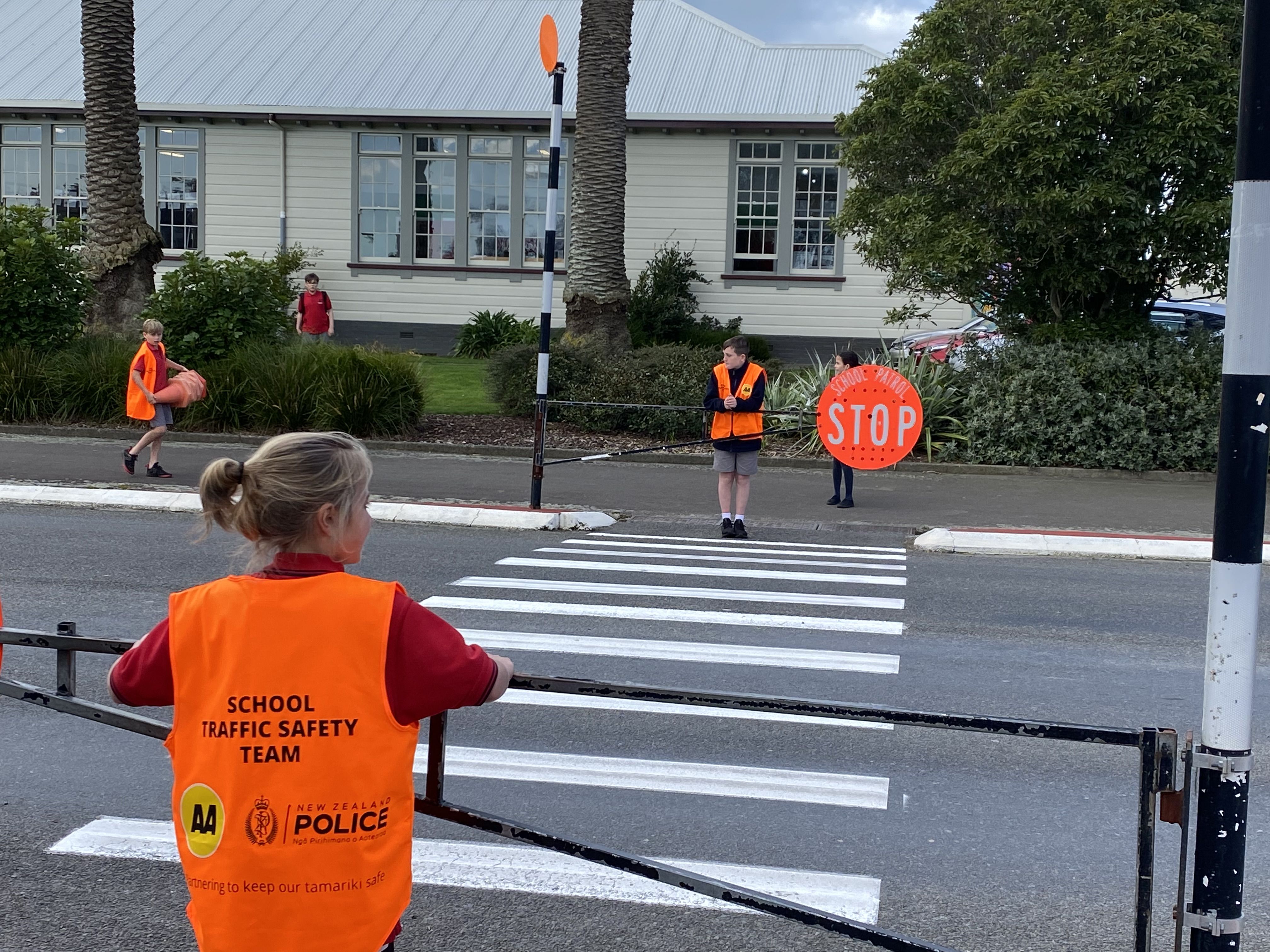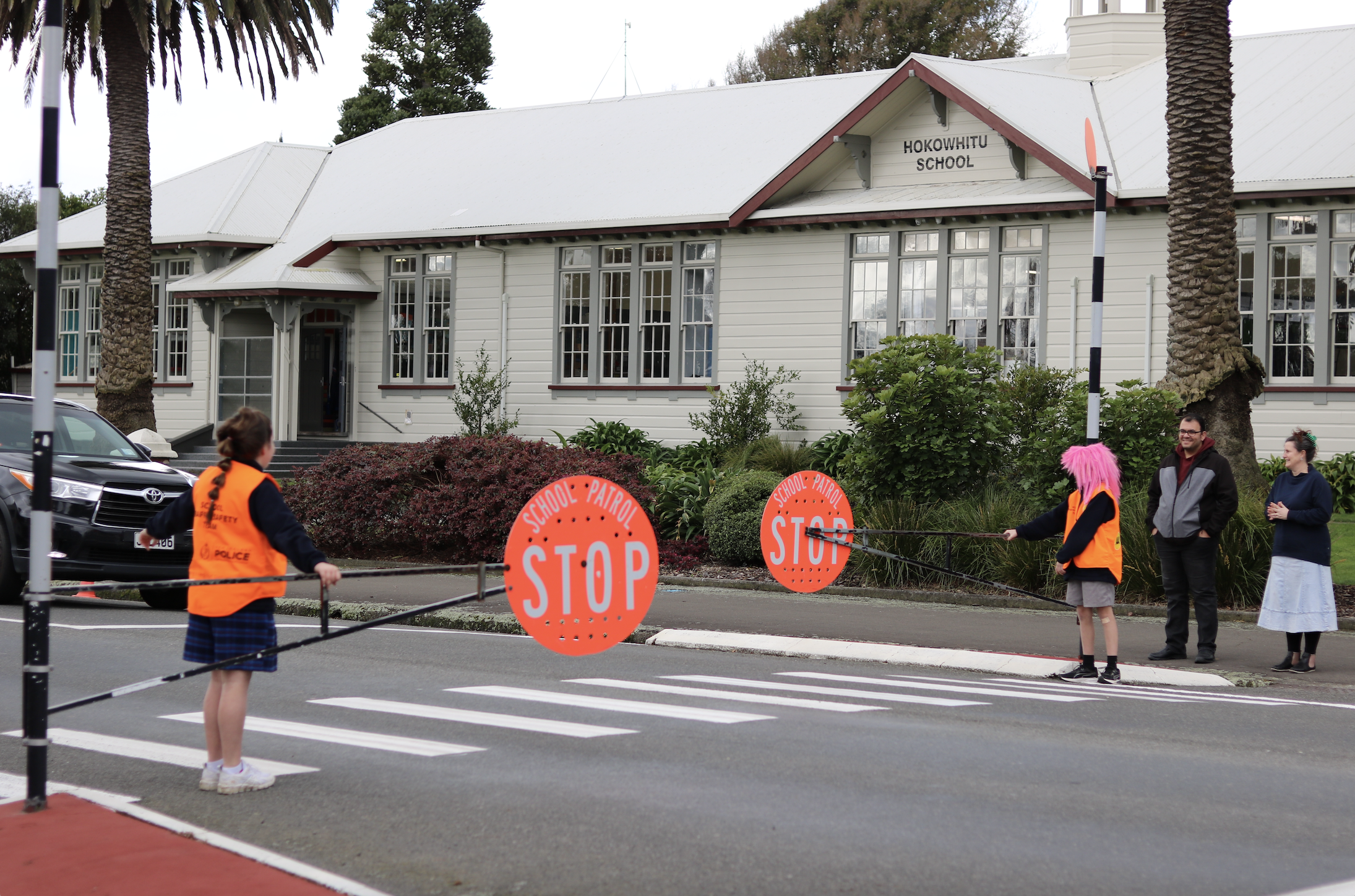Health & Safety
Healthy eating and sunsmart policies
Healthy food: Please ensure that your children are bringing healthy “brain food” to school each day.
Healthy drinks: We have a “water and milk only” policy for drinks that are consumed at school. These are the best options to help our kids concentrate at school, and to help keep them healthy.
Sunsmart policy: During terms 1 and 4, we require children to wear the regulation sunhat when involved in outside activities.
First aid and accidents
Our office manager, Jennifer, has a current First Aid Certificate and can treat minor injuries.
If staff are concerned that an injury requires a doctor’s examination, then parents or caregivers will be contacted and arrangements made. If parents or caregivers cannot be contacted, then the school will take responsibility for ensuring the child receives appropriate medical attention.
All accidents are recorded in a register held at the office, and this is regularly reviewed by the Hokowhitu School Board to ensure that our policies and procedures are keeping our children as safe as possible.
Cycling to and from school
We recommend that children only be allowed to ride on the road to and from school at 9 years of age or older.
For the safety of our children, please ensure that bicycles are roadworthy and are ridden sensibly. All children must by law wear a suitable, approved bicycle helmet.
School patrol and car parking
The pedestrian crossing in front of the school is supervised each morning from 8.30-8.45am and each afternoon from 3.00-3.15pm. We ask that parents and community members set a positive example by using the crossing whenever they need to cross Albert Street.
If you are transporting your child to school by car, please drop off and collect them away from the school gate. At this time of day there are a lot of children exiting the school, and a high volume of traffic on Albert Street, so for safety reasons please do not park in the driveways, in the staff carpark, on the pedestrian crossing, or on the yellow lines.
The proprietors of the Albert Street Dairy also request that you do not park in front of their shop.
Emergency preparedness and protocols
Fire and earthquake safety procedures are taught once per term. Evacuation drills are held regularly.
In the event of an emergency, the prime concern is the safety of children. Should an emergency occur, children will therefore be kept at school until it is safe to release them or parents arrive to collect them.
Medical information, medicines, and public health
Please keep us informed of any problems concerning your child’s health, so that we may best care for your child. All medical information is confidential.
If your child needs to have medicines close by – for asthma, or bee sting allergies, etc. – we would encourage you to leave some of the medication, carefully labelled, with the office so that we can treat any problems as necessary if they arise.
The Public Health Nurse is available to assist with health and social needs, and to help with the school’s Health Education programme. A hearing and vision tester from MidCentral Health visits the school twice a year to carry out routine testing of New Entrant and other children whose vision and/or hearing is causing concern. Parents will be advised of these visits.
Head lice/nits
These pesky creatures are a regular problem, especially in warmer weather. In spite of our best efforts, outbreaks will occur.
It is essential that all parents and caregivers regularly check their child’s hair and thoroughly treat lice if they find them. Suitable shampoos and combs are available from chemists.
Please advise your child’s teacher if you discover lice so that we can advise the other families in the class to also check their children. We must all be careful: head lice aren’t fussy about clean or dirty hair, and it only takes one untreated case to cause a further outbreak.
Teachers do not have the right to inspect children’s hair, but if we have serious cause for concern we may refer suspected cases to the Public Health Nurse.


